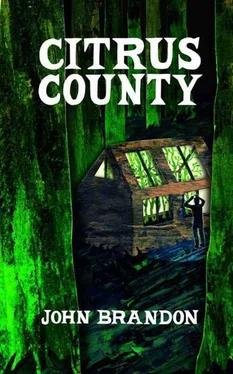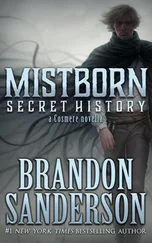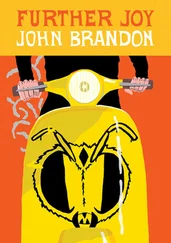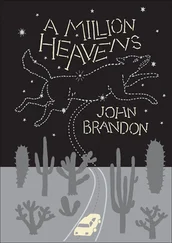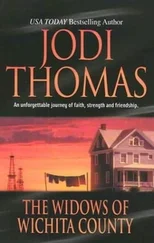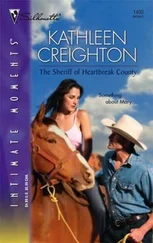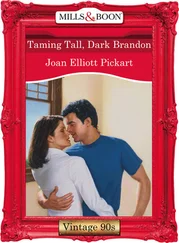Shelby noticed all the twitchy muscles in her father’s calves and biceps. He looked like he’d gone ten rounds, puffy under the eyes, spaced-out.
“What is this we’re listening to?” Shelby asked.
Shelby’s father set down his tongs. “Lady that works in the mosquito lab gave it to me. She got the songs off the computer.”
The song that was playing was a garage-load of groggy guitars, the lyrics unintelligible but clearly longing.
“I never wanted you to be an only child,” Shelby’s father declared.
Shelby said, “I’m not an only child.”
“Only children are deprived.” Shelby’s father turned a knob on the grill, tapping it with his thumb. “All the only children I ever knew had something wrong with them.”
“Everyone ends up with something wrong with them.”
“I never see my sister, but we were always fond. My sister is the type of person people are jealous of.”
“I’m contacting her for my Iceland presentation,” Shelby said. She’d found a reason to get in touch with her aunt, an excuse, and now she felt embarrassed for needing an excuse, a ruse, a school project. It didn’t make sense to Shelby that she was still afraid of things, that anything could make her nervous. Fear was an emotion that did not add up. It was her aunt, after all. She would be glad Shelby was old enough now that the two of them could get to know each other.
Shelby’s father plopped the kabobs onto a platter. He went in and got beers, handed one to Shelby. She took a swig and the flavor was bracing. The beer didn’t smell good, but it tasted like something that could cleanse you. It was the time before night, when the air was perfectly still and didn’t want to be breathed.
Another song began. White rappers. They emphasized the last word of each line, the word that rhymed. Car horns and whistles were mixed into the music.
“Did they just call the devil a trick bitch?” Shelby asked.
Shelby’s father shrugged.
It was Christian music. Shelby hit the stop button and her father didn’t protest. The woman in the mosquito lab had outsmarted them. She’d smuggled her beliefs into their home — contraband. She thought she knew what Shelby and her father needed. This house was a place people snuck things out of and into. They snuck little sisters out and snuck music in. Maybe Shelby needed a big, obvious enemy. A specific enemy that could never be defeated.
Shelby watched her father slide a hunk of beef off his skewer and cut it into pieces with his fork. She had more of her beer.
“Are we going to move again?” she asked.
“Do you think we should?”
“I just want to know.”
“Where would we go?”
Shelby had no idea. She didn’t think it mattered. It wouldn’t matter where they were going, only where they were leaving.
“I don’t think I have the energy for it,” Shelby’s father said. “Selling the house, finding a new job, packing up.” Shelby’s father pushed his plate aside and brought his beer in front of him. “We’re buddies,” he said. “Anything we do, we’ll discuss it.”
Shelby pressed her bare feet into the wood of the porch. She didn’t know if she wanted to be buddies with her dad. She knew she wanted him to shave his beard. She could never tell what he was really thinking, because half of his face was hidden. She wondered if her father would ever go on a date, go on vacation. There were a lot of things besides moving that he didn’t seem capable of.
“I almost left your mom,” he said. “And you.”
He set his beer bottle down, farther away than he’d pushed his plate. Shelby had seen the words issue forth from his beard, but she couldn’t immediately grasp them.
“I wasn’t in love with her,” he said.
Shelby sat very still. She kept her eyeballs still, her organs.
“I didn’t want to give up the fighting life,” her father said. “She didn’t cost me a great career or anything. I wasn’t that good. But the life.”
“So I was an accident?” said Shelby.
“No, you weren’t an accident. We talked about getting married and when your mother got pregnant we were happy. A couple months later, before the wedding—” Shelby’s father reached over and grabbed his beer and finished it. Shelby touched hers; it was warm. The things her father was saying were whipping past her.
“The night before the wedding, I started driving south. I had a bunch of clothes packed and I remember I packed a spatula. I didn’t know where I was headed. I drove half the night and then turned around and drove back. I never forgot the exit, either. This many years later, when you and me and your sister passed it in the car on the way down here. I remembered that exit where I turned back.”
Shelby wasn’t angry. If this was being a buddy, she didn’t like it, but she wasn’t angry.
“I’m glad you did,” she told her father. “I’m glad you came back.”
“ You’re glad?” Shelby’s dad chuckled. “I thought I was doing that because I was a decent man, like I was making a sacrifice, doing the right thing. I was real impressed with myself. I saved my life, coming back. I saved my own life. For whatever it’s worth.”
Shelby passed her beer to her father. He wouldn’t mind that it was warm.
“It’s worth something to me,” she said.
Toby accompanied Shelby to the public library. He knew she had something he needed, something that would fortify him, but he didn’t know if it was something she could offer or that he could accept. He didn’t know how to mine another person for something good. To Toby, Shelby was the opposite of the bunker; she was a bright kind of worry. In the bunker, Toby had to rely on his evil to lead him, but with Shelby he had to rely on his everyday self. When he thought about her, he felt he could toughen up and go about his normal business and keep his bunker business out of the rest of his life.
The library was open till nine on Wednesdays and Shelby wanted to e-mail her Aunt Dale. It was not fully night. The woods felt cramped. Shelby walked beside Toby, loosely grasping his elbow.
“My dad used to be an optimist.” Shelby halted. “And I used to be a realist.”
They’d reached a fork in the trail. Toby nodded to the left. Shelby was sweating, her skin lustrous.
“I guess I’m a pessimist now,” she said. “My dad says he hates pessimists.”
“You can call yourself whatever you want,” Toby said. “The same things are going to happen to you.”
“The bad things, anyway.”
“Especially the bad things.”
“What happened to your mom?” Shelby asked.
Toby felt how soft the sand was under each of his steps. In this part of the woods, it was like beach sand. He didn’t look at Shelby.
“You were young when she died, right?”
“I didn’t know her and neither did my uncle.”
“Why not?”
“I was too little. We lived far away from here.”
“Where?”
“Another part of the state.”
Shelby was still holding Toby’s elbow. “Is your uncle your dad’s brother?” she asked.
“I don’t talk about this stuff,” Toby said. “It really doesn’t matter whose brother anybody is.”
“Well, what did she look like, your mother?”
“I don’t have any pictures of her. I think she had long hair.”
“Can’t you see her in your mind?”
“What does it matter what she looked like?”
“I think it matters,” Shelby said.
“I don’t think it matters at all,” Toby said, sharply. He guided his elbow out of Shelby’s grip.
She got the hint. She didn’t ask any more questions. The trail hardened and then, near a buzzing power substation, turned to a gravel road. The library came into view, its parking lot swarming with old people and high school kids who couldn’t yet drive.
Читать дальше
